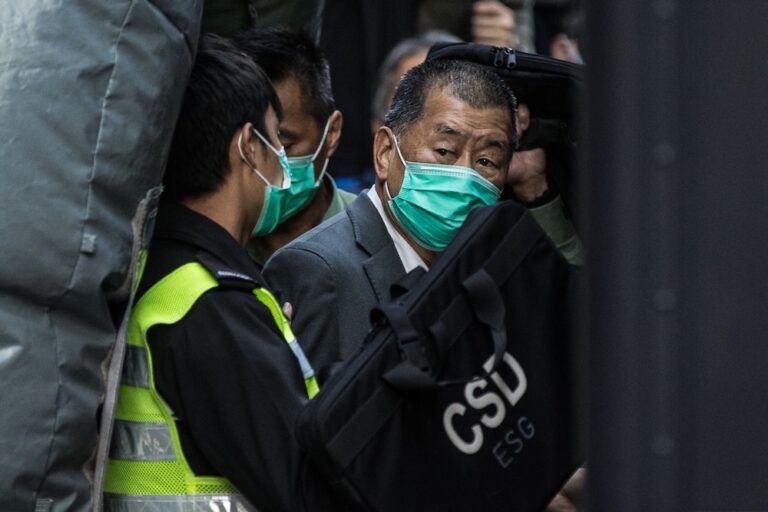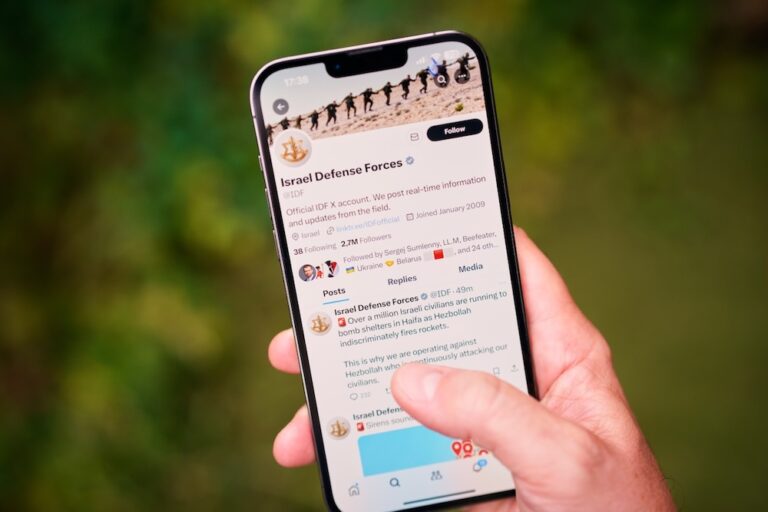(RSF/IFEX) – The following is an RSF press release: 39 Predators of Press Freedom Eight new names on the RSF list: Joynal Hazari (Bangladesh), Issaias Afeworki (Eritrea), Shaul Moffaz (Israel), Mahathir Mohamad (Malaysia), Palestinian security forces (the Palestinian Authorithy), Mswati III (Swaziland), Gnassingbé Eyadéma (Togo), Robert Mugabe (Zimbabwe). Reporters Without Borders (RSF – Reporters sans […]
(RSF/IFEX) – The following is an RSF press release:
39 Predators of Press Freedom
Eight new names on the RSF list: Joynal Hazari (Bangladesh), Issaias Afeworki (Eritrea), Shaul Moffaz (Israel), Mahathir Mohamad (Malaysia), Palestinian security forces (the Palestinian Authorithy), Mswati III (Swaziland), Gnassingbé Eyadéma (Togo), Robert Mugabe (Zimbabwe).
Reporters Without Borders (RSF – Reporters sans frontières) today publishes its list of the thirty-nine predators of press freedom. After having issued on 3 May 2001 a list of thirty-one predators, RSF adds eight new names:
– The Palestinian Authority Security Forces. They have arbitrarily questioned or detained several journalists who were critical of the Palestinian Authority. These foreign reporters, some Israeli, run risks if they wish to go to territories controlled by the Palestinian Authority. Some international media correspondents have been prevented from covering celebrations after the 11 September terrorist attacks.
– Joynal Hazari, Bangladeshi politician of the Awami League. Once again selected by his party for the 2001 elections, this former parliament member, involved in arms smuggling, ordered several attacks against journalists.
– Issaias Afeworki, Eritrea President. Since 18 September 2001, Eritrea is the only African country where the private press no longer exists.
– Shaul Moffaz, Israeli army Chief of Staff. Since the beginning of the second Intifada, more than 30 journalists have been wounded, sometimes seriously, by Tsahal gunshots.
– Mahatir Mohamad, Malaysian prime minister. The government has changed the press law and the interior security law to restrict the opposition press. Some international magazines are banned.
– Msawti III, king of Swaziland. All criticism directed against the monarchy is banned and the use of censorship is widespread. The king has issued decrees allowing him to ban any publications without justification.
– Gnassingbé Eyadéma, president of Togo. The longest-serving African president, he accepts no criticism. A journalist was sentenced recently to eighteen months’ imprisonment and numerous newspapers are often seized.
– Robert Mugabe, Zimbabwe’s president. The independent press and foreign reporters are the government’s target: some lists of journalists to “kill” are circulated among followers of Mr Mugabe, and eight media professionals were arrested in August 2001.
Many people are responsible for these press violations: presidents, ministers, public prosecutors, heads of state, Revolutionary Guides or simply army group leaders. They have the right to jail, kidnap, torture and, in the worst cases, kill journalists. Since these predators have faces, we must know them to better denounce them. Reporters Without Borders has decided to draw their portraits. Today, in addition to eight new names, we see Mullah Mohammad Omar (Afghanistan), Eduardo dos Santos (Angola), Alexander Lukashenka (Belarus), François Compaoré (Burkina Faso), Than Shwe (Burma), the kidnapping mafia (Chechnya), Jiang Zemin (China), Carlos Castaño (Colombia), Manuel Marulanda and Nicolás Rodríguez Bautista (Colombia), Fidel Castro (Cuba), Joseph Kabila (Democratic Republic of Congo), Teodoro Obiang Nguema (Equatorial Guinea), Meles Zenawi (Ethiopia), Ali Khamenei (Iran), Saddam Hussein (Iraq), Kirsan Iliumjinov (Kalmykia Republic – Russian Federation), Khamtai Siphandon (Laos), Moammar Gadhafi (Libya), Kim Jong-il (North Korea), Vladimir Putin (Russia), Paul Kagame (Rwanda), Fahd ibn al-Saud (Saudi Arabia), ETA (Spain), Bashar el-Assad (Syria), Zine el-Abidine Ben Ali (Tunisia), Huseyin Kivrikoglu (Turkey), Saparmurat Niyazov (Turkmenistan), Leonid Kuchma (Ukraine), Islam Karimov (Uzbekistan), Nong Duc Manh (Vietnam).
Since the publication of the first list last May, some predators have intensified their repression. In Tunisia, president Ben Ali jailed journalist Sihem Bensedrine for six weeks. In Afghanistan, Mullah Omar, after banning the Internet, has ordered the arrest of five foreign journalists since 11 September. Chinese president Jiang Zemin jailed more than ten dissidents. In Cuba, Fidel Castro jailed a cyber-dissident. In Russia, President Putin took control of national media. Finally, in the Democratic Republic of Congo, security services have arrested some ten journalists in the past four months.
Several of these predators have ordered the murders of journalists. They have never been implicated by the justice sytem. This is why Reporters Without Borders created the Damocles network, set up to struggle against past and present predators, to prevent them from living in peace inside or outside their country. Dictators must be held responsible for their crimes, and face international justice. It is time to put an end to their impunity.
The portraits of the predators are online on www.rsf.org.


